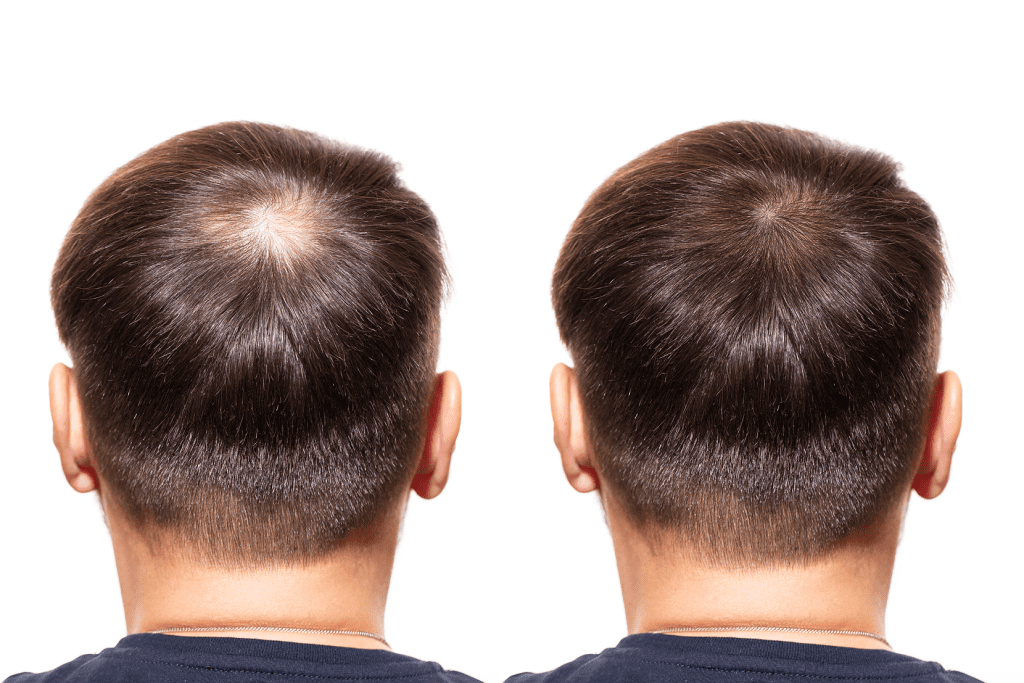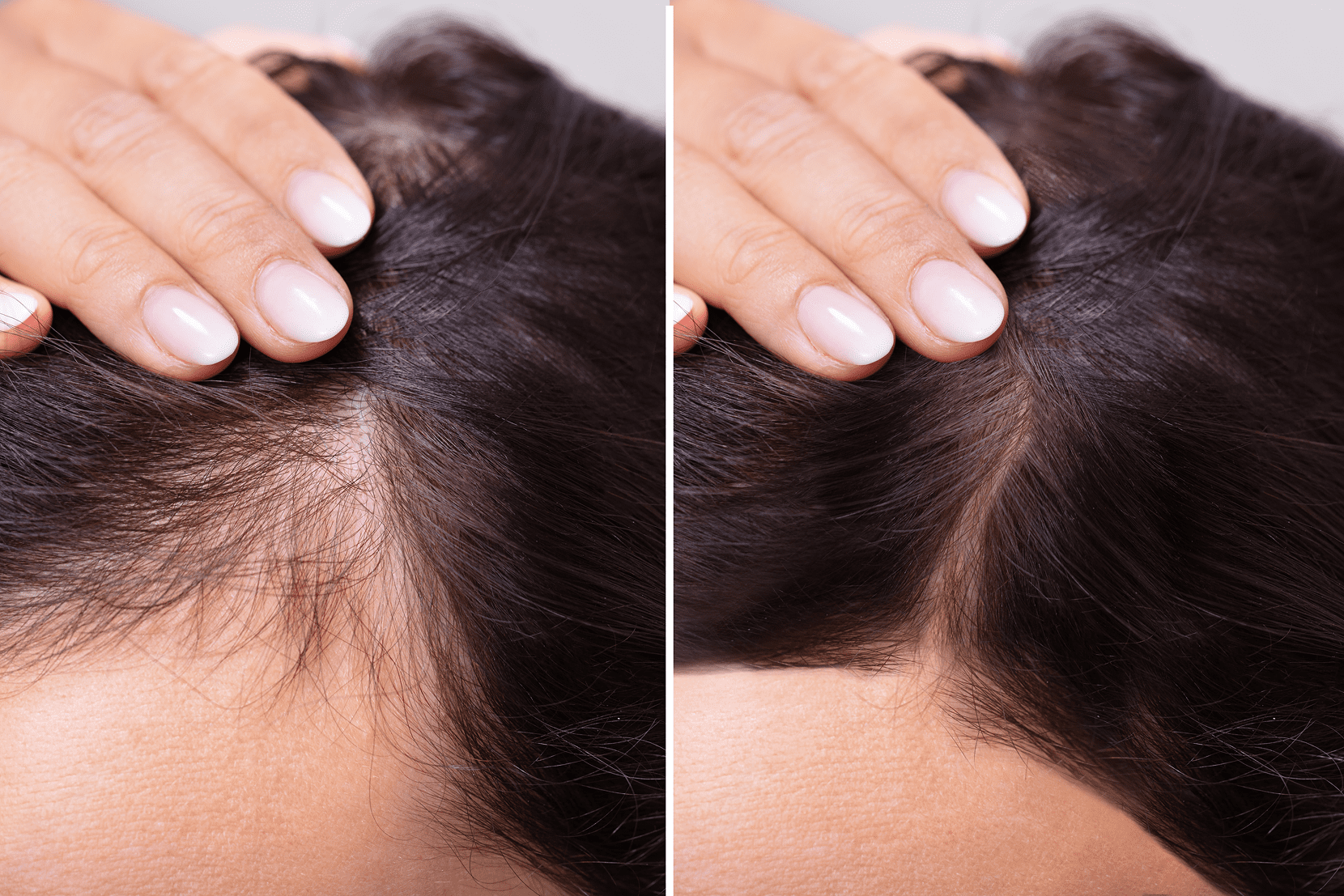Hair loss in men and women can have multiple causes. The first step in addressing your hair loss is a medical visit to determine if there are any underlying causes that contribute to your hair loss. This can include hormonal imbalances, anemia, autoimmune disease and various metabolic disorders. A physical exam will be conducted and lab tests or a scalp biopsy conducted as needed.
The treatments for hair loss may differ depending on the underlying problem. Treatment possibilities include the following:
Growth Factor Injections For Hair Loss

Autologous-derived growth factors is an established technique in many areas of medicine including hair loss, wound healing and tissue repair. In this technique, a small amount of your blood is taken and then processed to separate and concentrate certain blood factors from the other blood components. Autologous-derived growth factors injections into the scalp have been shown to grow hair in both pattern baldness and alopecia areata. Sometimes microneedling is performed in conjunction with this procedure to help the growth factors penetrate the scalp.
How many growth factor injection treatments are needed to treat hair loss?
Several treatments are typically required over the course of a year. Booster treatments are advised as well.
Are injections for hair loss covered by insurance?
Injections for hair loss is is not covered by insurance.
ProCell Microneedling and Serum
Microneedling and growth factors serums can be used to grow hair, similar to autologous-derived growth factors but without the need to draw blood. Procell Therapies Hair Regrowth Serum (HRS) disrupts counteracts DHT’s impact on the hair follicle, allowing dormant follicles to function. Thinning hair may be caused by scalp damage poor nutrition, stress, medications, and environmental exposure. Overyears, the skin of the scalp produces less growth factors and is less able to repair damage. The scalp can eventually fibrose or scar, and hair follicles become miniaturized and non-functional. Stem cells in the hair follicles are crucial for production of hair, and growth factors can provide support to these stem cells, helping hair to re-grow.
Intralesional Steroid Injections For Hair Loss
Injection of dilute steroid into the scalp can help certain types of hair loss, such as alopecia areata and hair loss associated with inflammatory scalp disease. These injections are usually performed monthly.
Topical Medications For Hair Loss
Topical medications are often used for hair loss, especially for androgentic alopecia, also known as pattern hair loss. Rogaine (Minoxidil) is commonly used. Topical estrogens, (Estrone) are sometimes helpful as well. Latisse (Bimatoprost) is used off-label as well, and is being studied for hair loss in clinical trials. Ketoconazole shampoo, usually used for dandruff and seborrheic dermatitis, has some anti-androgen effects as well.
Oral Medications for Hair Loss
Oral medications are used for certain types of hair loss, notably androgenetic alopecia. These medications include Propecia (Finasteride), Dutasteride, Spironolactone, and anti-inflammatory antibiotics such as doxycycline. In women, oral contraceptive pills are sometimes used as well.
Vitamins
Vitamins will not make new hair grow, but can help existing hair grow longer and stronger. Biotin is usually used at 2,000 to 5,000 micrograms daily.

